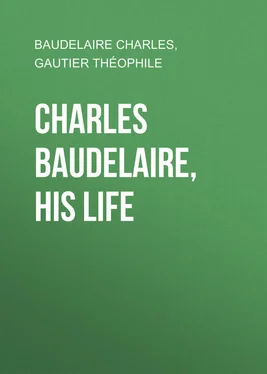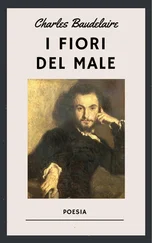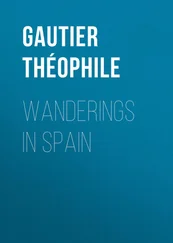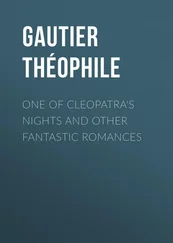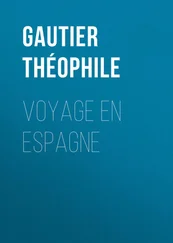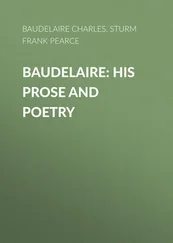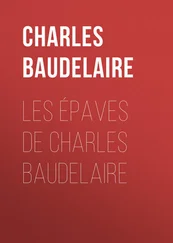Théophile Gautier - Charles Baudelaire, His Life
Здесь есть возможность читать онлайн «Théophile Gautier - Charles Baudelaire, His Life» — ознакомительный отрывок электронной книги совершенно бесплатно, а после прочтения отрывка купить полную версию. В некоторых случаях можно слушать аудио, скачать через торрент в формате fb2 и присутствует краткое содержание. Жанр: foreign_antique, foreign_prose, на английском языке. Описание произведения, (предисловие) а так же отзывы посетителей доступны на портале библиотеки ЛибКат.
- Название:Charles Baudelaire, His Life
- Автор:
- Жанр:
- Год:неизвестен
- ISBN:нет данных
- Рейтинг книги:4 / 5. Голосов: 1
-
Избранное:Добавить в избранное
- Отзывы:
-
Ваша оценка:
- 80
- 1
- 2
- 3
- 4
- 5
Charles Baudelaire, His Life: краткое содержание, описание и аннотация
Предлагаем к чтению аннотацию, описание, краткое содержание или предисловие (зависит от того, что написал сам автор книги «Charles Baudelaire, His Life»). Если вы не нашли необходимую информацию о книге — напишите в комментариях, мы постараемся отыскать её.
Charles Baudelaire, His Life — читать онлайн ознакомительный отрывок
Ниже представлен текст книги, разбитый по страницам. Система сохранения места последней прочитанной страницы, позволяет с удобством читать онлайн бесплатно книгу «Charles Baudelaire, His Life», без необходимости каждый раз заново искать на чём Вы остановились. Поставьте закладку, и сможете в любой момент перейти на страницу, на которой закончили чтение.
Интервал:
Закладка:
As true innocence charms, so the trickery of pretended innocence disgusts and displeases. The quality of the nineteenth century is not precisely naïveté, and it needs, to render its thoughts and dreams explicit, idiom a little more composite than that employed in the classics. Literature is like a day; it has its morning, noon, evening, and night. Without vain expatiation as to whether one should prefer dawn or twilight, one ought to paint the hour which is at hand, and with a palette of all the colours necessary to give it its full effect. Has not sunset its beauty as well as dawn? The copper-reds, the bronze-golds, the turquoise melting to sapphire, all the tints which blend and pass away in the great final conflagration, the light-pierced clouds which seem to take the form of a falling aerial Babel – have they not as much to offer to the poet as the rosy-fingered Dawn? But the time when the Hours preceded the Chariot of Day is long since fled.
The poet of the "Flowers of Evil" loved what is unwisely known as the style of the decadence, and which is no other thing than Art arrived at that point of extreme maturity that determines civilisations which have grown old; ingenious, complicated, clever, full of delicate tints and refinements, gathering all the delicacies of speech, borrowing from technical vocabularies, taking colour from every palette, tones from all musical instruments, forcing itself to the expression of the most elusive thoughts, contours vague and fleeting, listening to translate subtle confidences, confessions of depraved passions and the odd hallucinations of a fixed idea turning to madness.
This style of the decadence is the "dernier mot" of Verbe, summoned to express all and to venture to the very extremes. One can recall, à propos of him, language already veined with the greenness of decomposition, savouring of the Lower Roman Empire and the complicated refinements of the Byzantine School, the last form of Greek Art fallen into deliquescence; but such is the necessary and fatal idiom of peoples and civilisations where an artificial life has replaced a natural one and developed in a man who does not know his own needs. It is not easy, moreover, this style condemned by pedants, for it expresses new ideas in new forms and words that have never been heard of before. Contrary to the classical style, it admits of backgrounds where the spectres of superstition, the haggard phantoms of dreams, the terrors of night, remorse which leaps out and falls back noiselessly, obscure fantasies that astonish the day, and all that the soul in its deepest depths and innermost caverns conceals of darkness, deformity, and horror, move together confusedly. One can well imagine that the fourteen hundred words of the dialect of Racine do not suffice an author who is given the difficult task of rendering modern ideas and things in all their infinite complexity and their diversity of colour.
Thus Baudelaire, who, despite his ill success at his baccalaureate examination, was a good Latinist, preferred undoubtedly, to Vergil and to Cicero, Apuleius, Juvenal, Saint Augustine, and Tertullian, whose style has the black radiance of ebony. He went even to the Latin of the Church, to hymns and chants in which the rhyme represents the old forgotten rhythm, and he has addressed, under the title of "Franciscæ meæ Laudes," "To an erudite and devotee," such are the terms of the dedication, a Latin poem rhymed in the form that Brizeux called ternary, which is composed of three rhymes following one another, instead e of alternating as in the tiercet of Dante. To this odd piece of work is joined a note no less singular. We transcribe it here, for it explains and corroborates what has just been said about the idioms of the decadence:
"Does it not seem to the reader, as to me, that the language of the last Latin decadence – the supreme sigh of the strong man already transformed and prepared for the spiritual life – is singularly adequate to express the passion that is comprised in, and felt by, the modern world? Mysticism is the opposite pole on the compass of Catullus and his followers, purely cynical and superficial poets, who have only known the pole of sensuality. In this marvellous language, solecism and barbarism seem to me to express the negligences of a passion forgetful of itself and regardless of conventionality. The words, taken in a new acceptation, reveal the charming maladroitness of a northern barbarian kneeling before a Roman beauty. The pun itself, when it crosses pedantism, has it not the saving grace and irregularity of infancy?"
It is unnecessary to push this point further. Baudelaire, when he had not to express some curious deviation, some unknown side of the soul, employed pure, clear language, so correct and exact that even the most difficult to please would find nothing to complain of. This is especially noticeable in his prose writings, when he treats of more general and less abstruse subjects than in his verse.
With regard to his philosophical and literary tenets, they were those of Edgar Allan Poe, whom he had not then translated but whom he greatly admired. One can apply to him the phrases that he himself wrote of the American author in the preface to the "Extraordinary Histories ": – "He considered progress, the great modern idea, as the ecstasy of fools, and he called the perfectionings of human habitations, scars and rectangular abominations. He believed only in the Immutable, the Eternal, the self-same, and he was in the possession of – cruel privilege! in a society amorous only of itself – the great good sense of a Machiavelli who marches before the wise as a column of light across the desert of history." Baudelaire had a perfect horror of philanthropists, progressionists, utilitarians, humanitarians, Utopians, and of all those who pretend to reform things, contrary to nature and the universal laws of society. He desired neither the suppression of hell nor of the guillotine for the disposal of sinners and assassins. He did not believe that men were born good, and he admitted original perversity as an element to be found in the depths of the purest souls – perversity, that evil counsellor who leads a man on to do what is fatal to himself, precisely because it is fatal and for the pleasure of acting contrary to law, without other attraction than disobedience, outside of sensuality, profit, or charm. This perversity he believes to be in others as in himself; therefore, when he finds a servant in fault he refrains from scolding him, for he regards it as an irremediable curse. It is, then, very wrong of short-sighted critics to have accused Baudelaire of immorality, an easy form of evil-speaking for the mediocre and the jealous, and always well taken up by the Pharisees and J. Prudhommes. No one has professed greater disgust for baseness of mind or unseemliness of subject.
He hated evil as a mathematical deviation, and, in his quality of a perfect gentleman, he scorned it as unseemly, ridiculous, bourgeois and squalid. If he has often treated of hideous, repugnant, and unhealthy subjects, it is from that horror and fascination which makes the magnetised bird go down into the unclean mouth of the serpent; but more than once, with a vigorous flap of his wings, he breaks the charm and flies upwards to bluer and more spiritual regions. He should have engraved on his seal as a device the words "Spleen et Idéal," which form the title of the first part of his book of verse.
If his bouquet is composed of strange flowers, of metallic colourings and exotic perfumes, the calyx of which, instead of joy contains bitter tears and drops of aqua-tofana, he can reply that he planted but a few into the black soil, saturating them in putrefaction, as the soil of a cemetery dissolves the corpses of preceding centuries among mephitic miasmas. Undoubtedly roses, marguerites, violets, are the more agreeable spring flowers; but he thinks little of them in the black mud with which the pavements of the town are covered. And, moreover, Baudelaire, if he understands the great tropical landscapes where, as in dreams, trees burst forth in strange and gigantic elegance, is only little touched by the small rural sites on the outskirts; and it is not he who will frolic like the Philistines of Heinrich Heine before the romantic efflorescence of spring and faint away at the song of the sparrows. He likes to follow the pale, shrivelled, contorted man, convulsed by passions, and actual modern ennui, through the sinuosities of that great madrepore of Paris – to surprise him in his difficulties, agonies, miseries, prostrations, and excitements, his nervousness and despair.
Читать дальшеИнтервал:
Закладка:
Похожие книги на «Charles Baudelaire, His Life»
Представляем Вашему вниманию похожие книги на «Charles Baudelaire, His Life» списком для выбора. Мы отобрали схожую по названию и смыслу литературу в надежде предоставить читателям больше вариантов отыскать новые, интересные, ещё непрочитанные произведения.
Обсуждение, отзывы о книге «Charles Baudelaire, His Life» и просто собственные мнения читателей. Оставьте ваши комментарии, напишите, что Вы думаете о произведении, его смысле или главных героях. Укажите что конкретно понравилось, а что нет, и почему Вы так считаете.
